oven5466
About oven5466
15 Hot Trends Coming Soon About Oven And Hob
The Complete Guide to Ovens and Hobs: Choosing the Right Appliances for Your Kitchen
When it pertains to producing culinary masterpieces, the value of quality kitchen devices can not be overstated. Ovens and hobs are the heart of any kitchen, making it possible for home cooks and professional chefs alike to produce, bake, and sauté scrumptious meals. Comprehending the different types of ovens and hobs, in addition to their features and functionalities, is important for making educated purchasing decisions. This short article provides an in-depth take a look at ovens and hobs, helping you navigate the options available so that you can enhance your kitchen’s effectiveness and flexibility.

Comprehending Ovens
Ovens are important for cooking and baking and can be found in different types to satisfy varied cooking requirements. Here is an overview of the most typical kinds of ovens:
1. Traditional Ovens
Traditional ovens work by warming the air inside with gas or electric components. They are ideal for baking cakes, roasting meats, and cooking casseroles.
2. Convection Ovens
These ovens utilize a fan to flow hot air, supplying an even temperature throughout, which can considerably reduce cooking times. They are ideal for baking cookies or roasting veggies.
3. Microwave Ovens
Microwaves prepare food rapidly utilizing electromagnetic radiation. They are ideal for reheating leftovers or thawing frozen foods however are not appropriate for browning or crisping.
4. Wall Ovens
Integrating a wall oven into your kitchen design can conserve space and create a sleek visual. They work similar to conventional or convection ovens however are built into the wall for easy access.
5. Variety Ovens
These ovens integrate stovetop burners with an oven, offering adaptability for those who choose a single device for all cooking needs.
| Type | Cooking Method | Best For |
|---|---|---|
| Standard | Electric/Gas | Baking, roasting |
| Convection | Air blood circulation | Quick cooking, even baking |
| Microwave | Electro-magnetic | Reheating, thawing |
| Wall Ovens | Electric/Gas | Space-saving, sleek style |
| Variety Ovens | Electric/Gas | Versatile cooking |
Checking out Hobs
Hobs, also called cooktops or stovetops, offer the surface to cook pans directly over a heat source. Like ovens, hobs come in different types, which can be classified as follows:
1. Gas Hobs
These hobs utilize a flame for cooking and supply instant heat control. They are preferred by numerous chefs for their responsiveness and accuracy.
2. Electric Hobs
Electric hobs utilize coils or flat surface areas to heat pans. They provide a constant heat source, but they may take longer to cool off compared to gas hobs.
3. Induction Hobs
Induction hobs utilize electromagnetic energy to heat pots and pans directly, making them highly efficient and faster to cook. They are also much easier to clean up as the surface area remains reasonably cool.
4. Strong Plate Hobs
These are older technology that uses strong metal plates to supply heat. They are resilient however are less effective than contemporary choices.
| Type | Heat Source | Benefits | Downsides |
|---|---|---|---|
| Gas Hobs | Flame | Instantaneous heat control | Requires gas connection |
| Electric Hobs | Electric coils | Constant heat | Slower to cool down |
| Induction Hobs | Electro-magnetic | Quick cooking, energy-efficient | Requires suitable cookware |
| Strong Plate Hobs | Strong metal plate | Resilience | Less efficient |
Choosing the Right Appliances
Picking the best oven and hob for your kitchen involves considering various factors:
1. Area and Layout
Procedure your kitchen location to figure out the size and placement of the oven and hob. Ensure there is appropriate ventilation, particularly for gas devices.
2. Cooking Style
Think about how typically you cook and the kind of meals you prepare. A convection oven may match devoted bakers, while someone who often stir-fries might choose an induction hob.
3. Energy Source
Decide on the energy source that best fits your way of life. Gas provides instant control, while electric and induction hobs supply ease of usage and are frequently more energy-efficient.
4. Budget plan
Determine your spending plan for kitchen appliances. Ovens and hobs vary significantly in price, depending on functions and brand names. Prioritize necessary features that fulfill your requirements.
5. Functions
Search for performances such as self-cleaning options, wise technology compatibility, particular rack setups for ovens, and safety features for hobs.
Frequently Asked Questions (FAQs)
Q1: What is the difference between a traditional oven and a convection oven?A1: Conventional ovens heat the air inside without fans, while convection ovens utilize a fan to flow hot air for more even cooking. Q2: Can I utilize aluminum pots and pans on induction hobs?A2: No, induction hobs require ferrous (magnetic )products like cast iron or stainless steel to work efficiently. Q3: Do gas hobs heat much faster than electric hobs?A3: Yes, gas hobs offer immediate heat, making them quicker for cooking compared to electric hobs. Q4: Is it safe to utilize a microwave oven?A4: Yes, when utilized according to the maker’s directions, microwave are considered safe for cooking.
Q5: How frequently should I clean my oven and hob?A5: For optimum efficiency, tidy your oven regularly, especially after spills. Hobs should be wiped down after each use
to prevent buildup. Ovens and hobs
are indispensable components of a fully equipped kitchen. Comprehending the numerous types, their performances, and the factors to consider associated with purchasing
them can significantly enhance cooking experiences. Whether one is a casual home cook or an expert chef, investing time in selecting the ideal home appliances can lead to culinary success and complete satisfaction in the kitchen. By prioritizing features that line up with your cooking style, energy sources that fit your home, and budget factors to consider, you can produce an efficient work space that influences culinary imagination.
No listing found.
